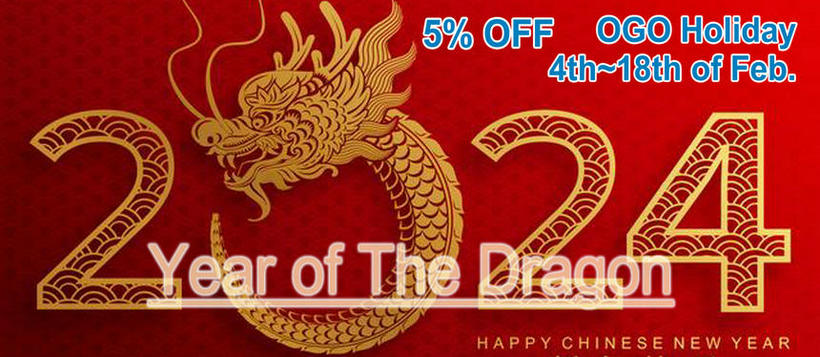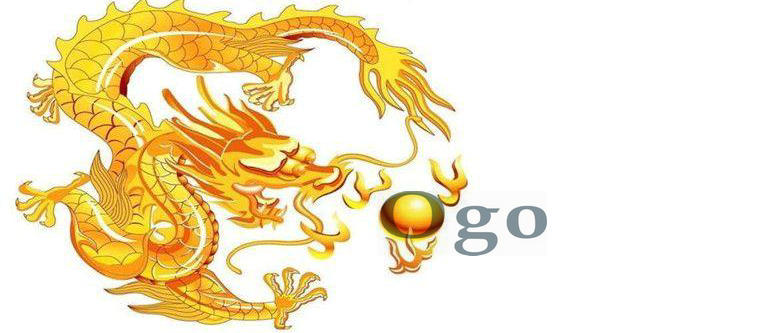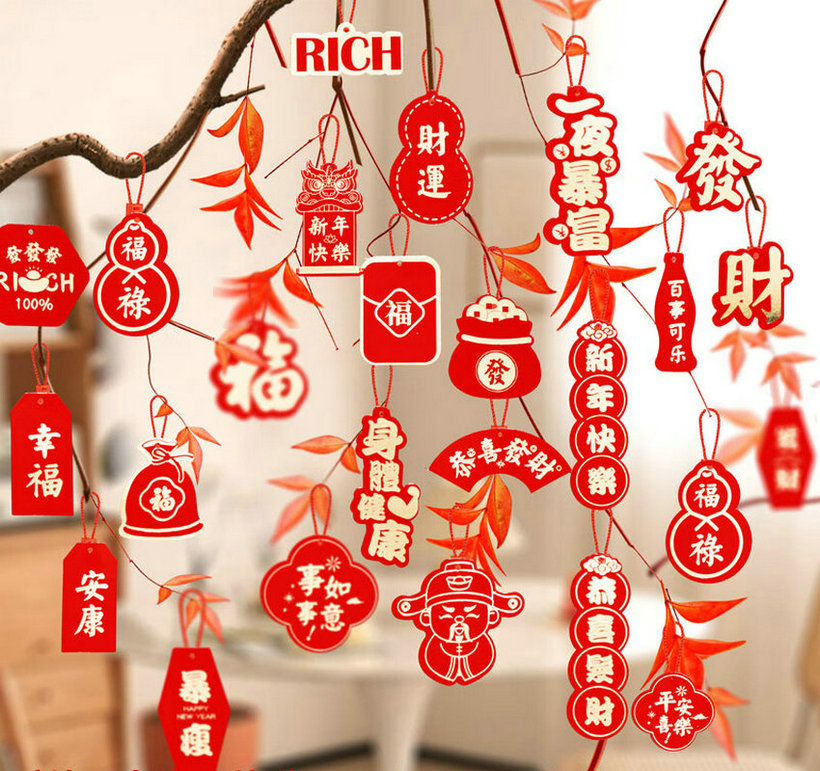
OGO Company wishes you good health, all the best, prosperity, and congratulations in the Lunar Year of the Dragon.
OGO's holiday period is from February 4th to 18th. Orders placed after January 31st will be shipped after February 18th.
Thank you for your understanding. If you have any questions, please email us promptly at sales@ogohho.com

Introduction to the Traditional Chinese Lunar Year of the Dragon:
The Lunar Year of the Dragon is an important festival in the traditional Chinese lunar calendar, symbolizing auspiciousness, prosperity, and the soaring spirit of the dragon. The dragon holds a significant place in Chinese culture, embodying good fortune, authority, courage, and strength. Here is an introduction to the Traditional Chinese Lunar Year of the Dragon:
Origin and History: The traditional Chinese lunar calendar, rooted in agricultural seasons and astronomical phenomena, has evolved over thousands of years. The origin of the Lunar Year of the Dragon can be traced back to ancient imperial China, where people devised the lunar calendar based on celestial observations and natural changes, dividing time into cyclical years represented by the twelve animals of the Chinese zodiac, with the dragon being one of them.
Symbolic Meaning of the Dragon: In Chinese traditional culture, the dragon holds a revered status as a symbol of the divine. Considered a mystical creature, the dragon is believed to bring good luck and protect people from disasters. Legends associate the dragon with imperial lineage, linking it to royalty, honor, and prestige. The Year of the Dragon is often seen as a year filled with auspiciousness and good fortune.
Celebratory Activities: The Lunar Year of the Dragon is part of the Chinese traditional Spring Festival, which is one of the most important and grand celebrations in China. During this period, people engage in vibrant celebrations, including family reunions, visits to relatives and friends, watching fireworks, dragon and lion dances, and more. Customs such as decorating with red, hanging lanterns, and pasting couplets are integral to the festivities.
Folk Beliefs: During the Lunar Year of the Dragon, traditional rituals and religious ceremonies are conducted to pray for a bountiful harvest, peace, and happiness in the coming year. Some regions also have dragon-worshiping activities where ceremonies are held in temples or public spaces to express gratitude for the dragon's blessings.
Cultural Influence: The Lunar Year of the Dragon not only marks a traditional festival for the Chinese but also has a cultural impact throughout East Asia. Many neighboring countries celebrate the Year of the Dragon in similar ways, participating in various festivities during this period.
In summary, the Traditional Chinese Lunar Year of the Dragon represents expectations of auspiciousness, good fortune, and a bright future. This festival is not only a time to celebrate the arrival of the new year but also a vessel for preserving millennia-old culture, reflecting the Chinese people's aspirations for a better future and their appreciation for traditional values.

